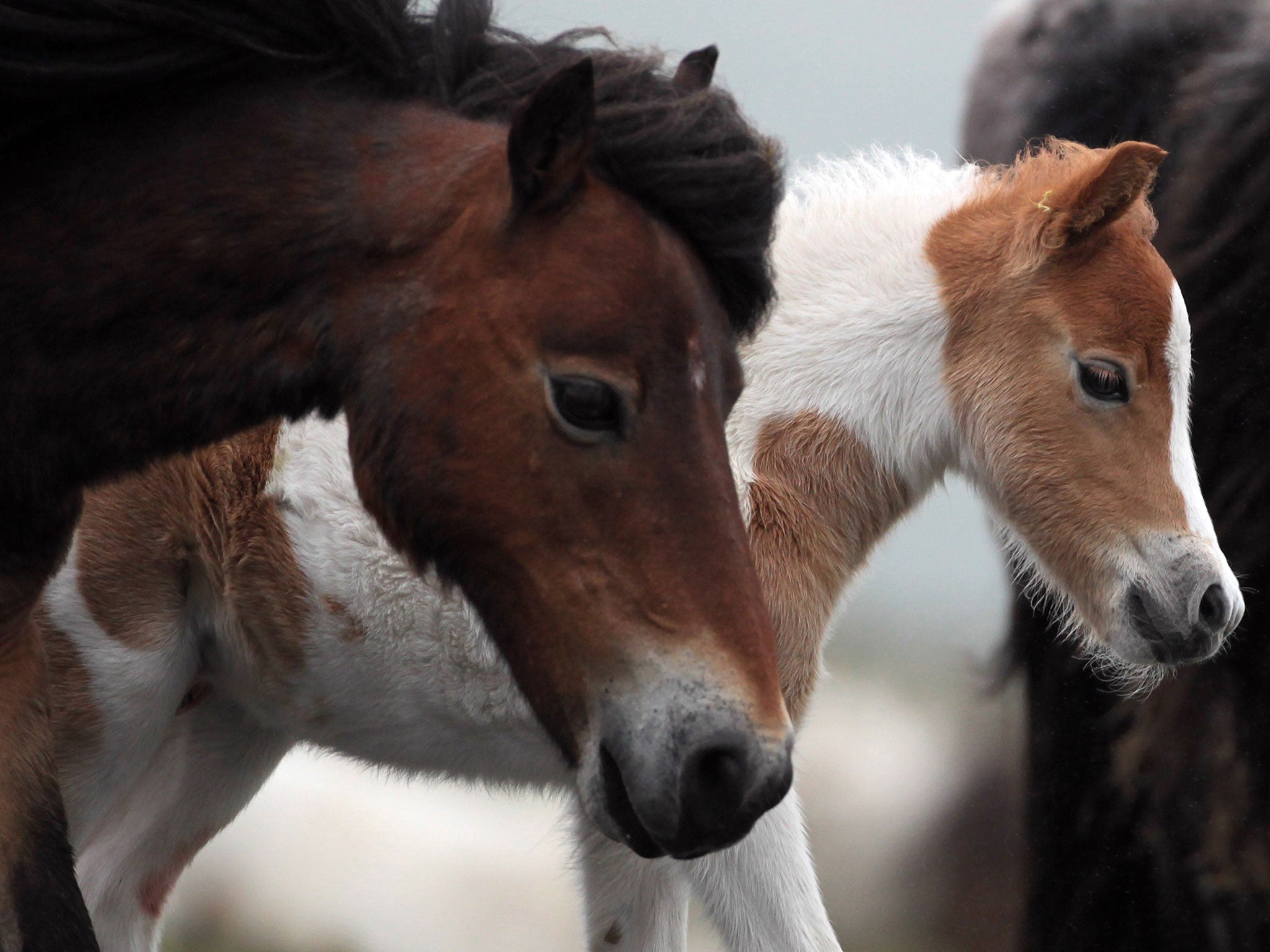How to save Dartmoor's hill ponies? Eat them, says animal conservation group
Charity claims the only way to ensure the species has a future is to create a market for their meat

Your support helps us to tell the story
From reproductive rights to climate change to Big Tech, The Independent is on the ground when the story is developing. Whether it's investigating the financials of Elon Musk's pro-Trump PAC or producing our latest documentary, 'The A Word', which shines a light on the American women fighting for reproductive rights, we know how important it is to parse out the facts from the messaging.
At such a critical moment in US history, we need reporters on the ground. Your donation allows us to keep sending journalists to speak to both sides of the story.
The Independent is trusted by Americans across the entire political spectrum. And unlike many other quality news outlets, we choose not to lock Americans out of our reporting and analysis with paywalls. We believe quality journalism should be available to everyone, paid for by those who can afford it.
Your support makes all the difference.An animal conservation group has suggested an unlikely method of saving hill ponies: eating them.
The Dartmoor Hill Pony Association (DHPA) said the best way to ensure the species had a future was to create a market for their meat.
The issue of eating horsemeat was raised in 2013 following revelations that it was found in beefburgers and other meat-based food on sale in British supermarkets. Some experts argued the British taboo against eating it created welfare problems for horses, with many sent to Europe to be slaughtered.
Charlotte Faulkner, founder of the DHPA, said in a letter to fellow charity, the South West Equine Protection (SWEP), that it should consider “giving measured support to this understandably upsetting subject, which as pony lovers we find so hard to accept”.
“It has taken years of considering reports and listening to the outcome of meetings to recognise and reluctantly accept that Dartmoor pony herders will only carry on keeping their herds if they have a sustainable market for them. We are in real danger of ponies disappearing from Dartmoor altogether,” she said, according to The Daily Telegraph.
“Strangely, having a meat trade should improve a pony's chances of finding a new home at sales.”
SWEP dismissed the idea, with its welfare officer Becky Treeby saying: “It would be very upsetting to look at foals which in six months' time could be in someone's burger.”
The number of Dartmoor ponies has fallen from more than 25,000 in the 1930s to less than 800.
An RSPCA spokesman said the killing of horses for meat was “an emotive subject as many see them as companion animals rather than a food source, a sentiment the RSPCA has great sympathy with”.
“However, the Society's primary concern for all animals killed for meat is that they are cared for, handled, transported and slaughtered in a way which safeguards their welfare at all times,” he added. “We believe all animals for meat should be slaughtered as near to the place they have lived as possible.
“Many horses are transported live to the continent where their ultimate fate is unknown, but many may well be slaughtered. Once there, it's difficult to monitor whether EU transportation legislation is met and if the animals are slaughtered humanely.”
A report by the Exmoor Pony Society, the Exmoor National Park Authority and other conservation groups has also backed the idea of setting up a market for horsemeat in the UK.
“As there is so limited a market for ridden ponies, show ponies and conservation grazers, why not promote the free-living Exmoor ponies as a food animal as much as an amenity or aesthetic resource?” it said.
Join our commenting forum
Join thought-provoking conversations, follow other Independent readers and see their replies
Comments